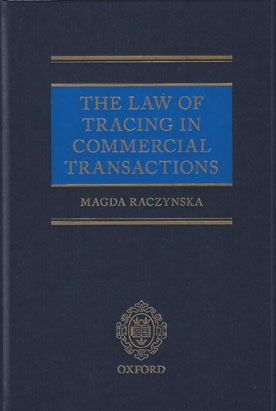
A pressing problem often facing commercial practitioners is how to determine the principle which would dictate when a proprietary claim is available and when it is not.
This book explains the nature and structure of key interests in property in commercial transactions and analyses the incidence of proprietary claims available to holders of different interests in assets.
The book starts by identifying the structure of those interests which the author terms "lesser proprietary interests", comprising security interests and interests based on retention of title in contracts of sale of goods, hire-purchase agreements, and leases, thereby contributing to the understanding of concepts which are traditionally used to explain this area of law such as bailment and fiduciary relationship.
Using this framework, the book examines the circumstances in which the interests are lost and the extent to which proprietary claims can be asserted in assets that derive from the original subject matter, that is proceeds, products and income, as well as in accretions.
It examines these claims at three levels: first, as a matter of default rules in the absence of misappropriation of the original subject matter; secondly, as a matter of contract, considering the limits of contractual freedom; and thirdly, in circumstances in which the original subject matter has been misappropriated.
This book is the first to approach the topic of tracing and derived assets in commercial transactions on a principled basis. It subjects an area of little authority and general academic comment to rigorous and detailed analysis. It contains treatment of the relevant case law and discussion of points that have yet to come up in litigation in England and abroad. By way of comparison, it considers salient aspects of the relevant rules under Article 9 of the US Uniform Commercial Code.
The book is timely in light of the current debate on the shape of the law reform of secured transactions in England and elsewhere.